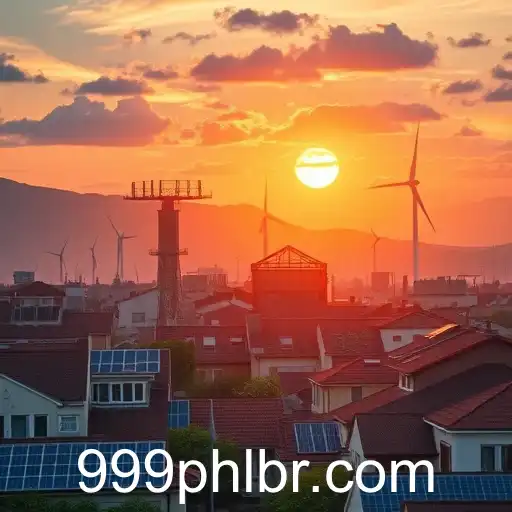
Exploring the burgeoning renewable energy sector amid geopolitical tensions in 2025.
As the world navigates through a complex web of geopolitical tensions and economic uncertainties in 2025, the renewable energy sector stands out as a beacon of hope. In particular, countries grappling with fossil fuel dependency and escalating climate commitments are finding solace in the advancements within this growing industry. The year has seen a marked increase in global investments, aiming to harness clean energy sources such as solar, wind, and hydroelectric power. This shift is not merely an environmental movement but a strategic pivot reducing reliance on volatile energy markets.
Throughout Europe, a rapid transition has been fueled by policies supportive of green innovations. Germany and France, notably, have expanded subsidies to accelerate the installation of solar panels on residential rooftops. Additionally, wind farms continue to dot the landscapes of the United Kingdom and Spain, contributing significantly to their clean energy output. Meanwhile, tensions between major oil-producing nations have reinforced Europe's resolve to diminish fossil fuel reliance.
Across the Atlantic, the United States is witnessing a state-driven push towards renewables. Political agendas have shifted to prioritize energy independence, with states like California and Texas leading the charge by setting ambitious targets for solar and wind power generation. This is occurring alongside a growing public sentiment that increasingly demands sustainable energy solutions over traditional oil and gas.
In Asia, China maintains its position as a global leader in renewable energy, both in production and investment. Despite facing challenges related to air quality and industrial pollution, the nation is making efforts to mitigate environmental impacts through stringent regulatory frameworks and technological innovations. India, too, is ramping up its solar initiatives, with a goal to reduce carbon emissions substantially by the end of the decade.
The crucial question that arises in this context is whether these efforts will suffice in ameliorating the adverse impacts of climate change while navigating the political dynamics associated with energy shifts. The scenarios illuminate a landscape where cooperation amongst nations is paramount to counter potential disruptions in existing energy supplies and to foster a collaborative approach to clean energy solutions.
With the keyword '999phl' resonating across digital platforms, it underscores the importance of disseminating comprehensive insights and reports on this essential topic. As the global community ventures further into uncharted waters, understanding the dynamics of energy transition remains a top priority for policymakers and citizens alike. It becomes increasingly apparent that while progress in this arena faces hurdles, the commitment to a sustainable future remains steadfast.




